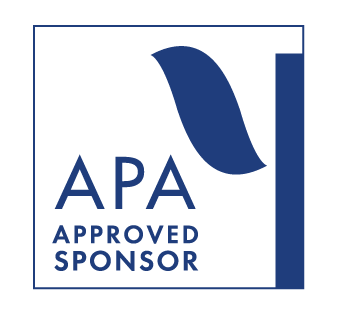The Nuts and Bolts of Meta-Analysis: A Guide for the Practitioner, Not Statistician
- Topic Areas:
- Meta-Analysis
- Categories:
- Pre-Recorded Homestudy
- Speakers:
- Jennifer Harrison, Ph.D., LP | Trisha Kivisalu, Ph.D.
- Course Levels:
- Introductory
- Duration:
- 1 Hour
- License:
- Never Expires.
Producer: Minnesota Psychological Association
Description
As practitioners of mental health services to a wide variety of clientele, part of the responsibility as ethical professionals is to stay current on advances in interventions in our field. Reviewing published literature is a key source of information for existing and new interventions. Meta-analysis is a quantitative research method used to synthesize available evidence from published literature with the goal of producing a mean effect size. The mean, or summary, effect size that is attained then speaks to the magnitude of the effect found, such as the impact of an intervention with a specific population. While meta-analysis follows a systematic method with straightforward steps, the statistics involved are quite complex in nature. However, with a few helpful tips that cover the basics of this important empirical method, practitioners without advanced statistical training can be adequately equipped to understand the nuts and bolts of meta-analysis. This presentation will provide attendees with a broad overview of the origin of the method, its relative importance, a breakdown of the process, and discuss what can and cannot be answered with this statistical method. In addition, steps to finding a meta-analysis as well as brief applications of these principles will be demonstrated. Recommendations for extrapolating relevant elements of meta-analytic studies that will help inform daily practice will be discussed.
Introductory: Assumes post-doctoral education status and limited familiarity with topic.
Objectives:
(1) Define and describe the purpose of a meta-analysis.
(2) Explain the steps of the meta-analytic method.
(3) Describe the primary resultant statistics in meta-analytic studies.
(4) Identify what can and cannot be answered with the meta-analytic method of research.
(5) Name the essential elements to take-away from reviewing a meta-analysis for clinical practice.
Credits
Courses sponsored by the Vermont Psychological Association are pre-approved for continuing education for psychologists by the Vermont Board of Psychological Examiners. This course qualifies for 1 continuing education credits.
Continuing education courses sponsored by the Vermont Psychological Association are pre-approved by the Vermont Office of Professional Regulation for continuing education credit for licensed independent clinical social workers in Vermont. This course provides 1 CE credits for Vermont licensing.
This course has been approved for continuing education credit by the Vermont Board of Allied Mental Health and earns 1 continuing education credits.

The New Hampshire Psychological Association is approved by the American Psychological Association to sponsor continuing education for psychologists. The New Hampshire Psychological Association maintains responsibility for this course and its content.
Completion of this course earns 1 continuing education credits. Psychologists licensed in states which approve courses sponsored by APA-approved sponsors may earn homestudy continuing education credit for taking this course.
The Vermont Psychological Association is approved by the American Psychological Association to offer continuing education for psychologists. These credits are also accepted by the New Hampshire Board of Mental Health Practice for clinical social workers licensed in New Hampshire, as provided in Mhp 402.02(b)(1). The course qualifies for 1 continuing education credits.
The Vermont Psychological Association is approved by the American Psychological Association to offer continuing education for psychologists. These credits are also accepted by the New Hampshire Board of Mental Health Practice for clinical mental health counselors licensed in New Hampshire, as provided in Mhp 402.02(b)(1). The course qualifies for mandated credit types as follows:
Ethics:
Suicide Prevention:
The Vermont Psychological Association is approved to offer continuing education to licensed clinical social workers by the Vermont Office of Professional Regulation, and is approved by the American Psychological Association to offer continuing education to psychologists. This course thus qualifies for 1.2 continuing education credits for Massachusetts licensed clinical social workers in Massachusetts under 258 C.M.R. §§ 31.04(2)(d), 31.04(5).
The Vermont Psychological Association is approved to offer continuing education to licensed clinical social workers by the Vermont Office of Professional Regulation, and is approved by the American Psychological Association to offer continuing education to psychologists. This course thus qualifies for 1.2 continuing education credits for Massachusetts licensed certified social workers in Massachusetts under 258 C.M.R. §§ 31.04(2)(d), 31.04(5).
The Vermont Psychological Association is approved by the American Psychological Association as a continuing education sponsor for psychologists. Continuing education credit in the amount of 1 credits earned in this course may be accepted by the Connecticut Department of Public Health for licensed clinical social workers under Conn. Agencies Regs. § 20-195o(c)-3.
This course is pre-approved for credit for Connecticut licensed professional counselors under Conn. Agencies Regs § 20-195cc-3(a)(1). This course qualifies for 1 continuing education credits.
Handouts
| Handout (1.7 MB) | Available after Purchase | ||
Speaker
Jennifer Harrison, Ph.D., LP Related Seminars and Products
Jennifer L. Harrison, Ph.D., LP earned her Ph.D. in Clinical Psychology with an emphasis in Forensics from the California School of Professional Psychology (CSPP) at Alliant International University. She is a licensed clinical and forensic psychologist for Direct Care and Treatment – Forensic Services (DCT-FS) in St. Peter, Minnesota. As a forensic examiner, she specializes in forensic evaluations to include competency to stand trial, criminal responsibility, civil commitment, and general and sexual violence risk assessment. Dr. Harrison also serves as a consultant with specialty in the delivery and implementation of a cognitive therapy known as Michael’s Game, a card game for the treatment of delusional ideas. She serves as adjunct faculty for CSPP at Alliant International University, as a primary reviewer with expertise in mental health and forensic psychology for Solutions IRB, and as a reviewer for forensically-related peer-reviewed journals.
The speaker has indicated there are no conflicts of interest.
Trisha Kivisalu, Ph.D. Related Seminars and Products
Trisha M. Kivisalu, Ph.D., R.Psych#2520. Dr. Kivisalu earned her Ph.D. in Clinical Psychology from the California School of Professional Psychology at Alliant International University. She is currently a Registered Psychologist with the College of Psychologists of British Columbia, and is a Nationally Registered Health Service Psychologist (#56258). She is a member of APA, CPA and the BC Psychological Association. Dr. Kivisalu has authored a number of meta-analytic studies examining reliability as it impacts psychologists in instrument selection, use and interpretation. She has presented on the topics of assessment/measurement, reliability, meta-analytic studies, teaching and training at local, national and international conferences across the US and Canada. She enjoys clinical practice, teaching/mentoring, supervision and research.
The speaker has indicated they do not have any conflicts of interest.
Course Objectives
Objective 1Define and describe the purpose of a meta-analysis.
Objective 2
Explain the steps of the meta-analytic method.
Objective 3
Describe the primary resultant statistics in meta-analytic studies.
Objective 4
Identify what can and cannot be answered with the meta-analytic method of research.
Objective 5
Name the essential elements to take-away from reviewing a meta-analysis for clinical practice.



